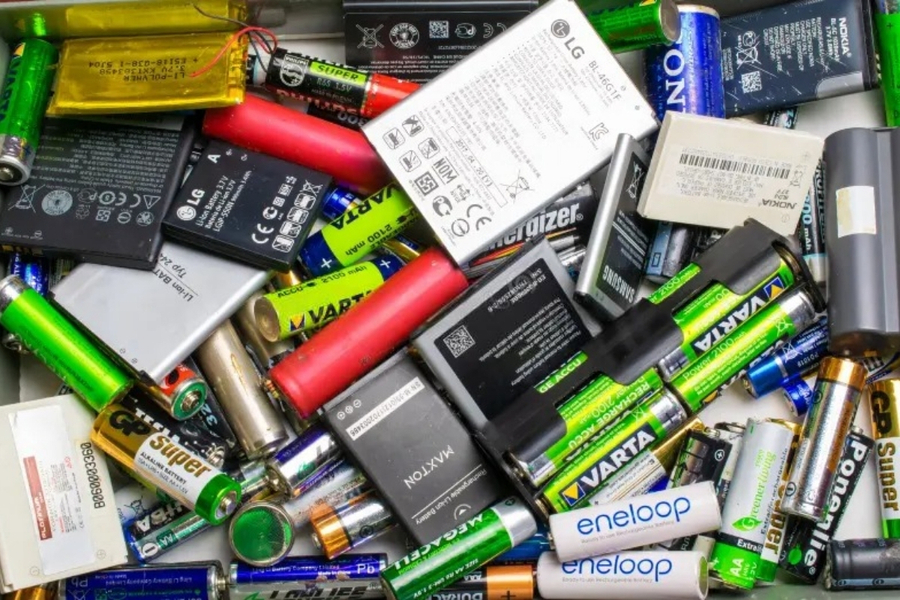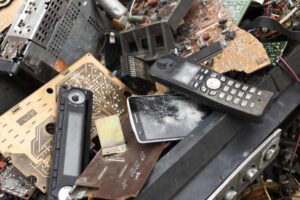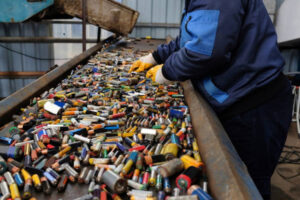Cell Phone Battery Recycling Guide
Cell phone battery recycling is more important than ever—and it starts with understanding why. With billions of smartphones in use worldwide, old batteries are piling up in junk drawers, landfills, and recycling centers. What most people don’t realize is that these batteries are packed with materials that can be harmful if tossed in the trash.
As phones get replaced more often, the environmental risk of battery waste grows. Tossed-out batteries can leak toxic chemicals, spark fires, or sit uselessly in landfills while the metals inside them go to waste. Recycling cell phone batteries isn’t just a good idea—it’s a responsibility.
Why You Should Recycle Cell Phone Batteries
It Reduces Landfill Waste and Protects the Environment
When batteries end up in landfills, they break down and leak harmful materials into the soil and water. Over time, this pollution damages ecosystems and harms wildlife. Cell phone battery recycling keeps those toxic elements out of the environment and helps shrink our growing e-waste problem.
It Keeps People Safe
Most phone batteries today are lithium-based—and when damaged, they can catch fire or even explode. Improper disposal puts garbage workers, recycling center staff, and entire neighborhoods at risk. Recycling through the proper channels ensures these batteries are handled safely.
It Recovers Materials
Cell phone batteries contain metals like lithium, cobalt, nickel, and copper—resources that are costly and environmentally damaging to mine. Recycling allows us to recover and reuse these materials, reducing the need for more extraction and supporting the growing demand for electronics and electric vehicles.
Types of Cell Phone Batteries
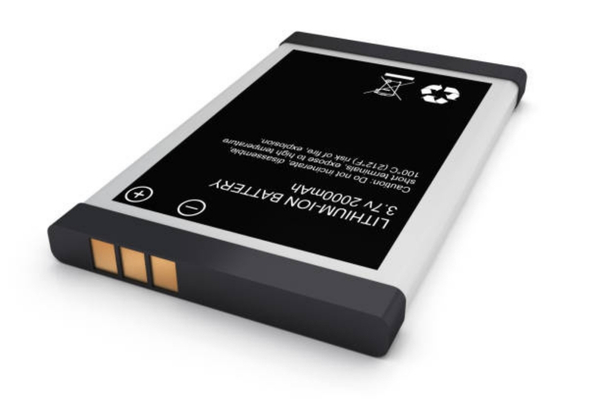
Cell phone battery recycling starts with understanding what’s inside the battery you’re getting rid of. Not all phone batteries are the same, and knowing the differences helps explain why proper disposal matters so much.
Here are the four most common types of cell phone batteries:
- Lithium-Ion (Li-ion):
Lithium, the most widely used battery in today’s smartphones. They’re lightweight, hold a strong charge, and recharge quickly—but they can overheat, catch fire, or explode if damaged or thrown in the trash. - Nickel-Cadmium (Ni-Cd):
Nickel-cadmium (Ni-Cd), found in much older phones. These are rarely used today because cadmium is highly toxic. Ni-Cd batteries pose serious environmental and health risks if not recycled properly. - Nickel-Metal Hydride (Ni-MH):
Nickel-Metal Hydride (Ni-MH), a safer, more environmentally friendly alternative to Ni-Cd. While they’ve been mostly phased out in favor of Li-ion, you might still find them in older devices. - Lithium-Polymer (Li-Po):
Lithium Polymer (Li-Po), a newer version of lithium-ion. These are thinner, lighter, and more flexible—ideal for slim smartphone designs. But just like Li-ion, they’re flammable when punctured or exposed to heat.
What Happens If You Don’t Recycle Batteries?
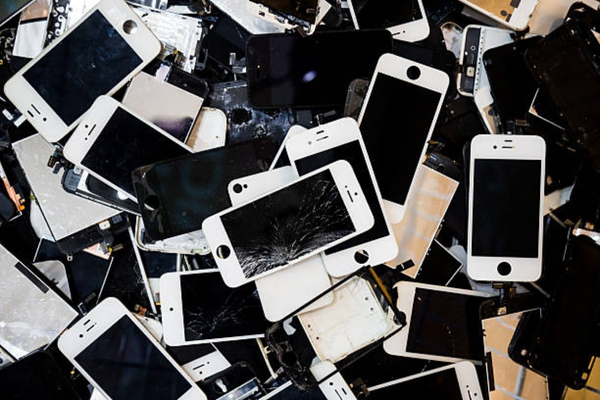
Skipping cell phone battery recycling isn’t just lazy—it’s dangerous. Here’s what can happen when batteries are tossed instead of recycled:
Environmental Damage
Batteries contain toxic metals like cadmium, lead, and mercury. When these seep into soil and water, they pollute drinking supplies, poison wildlife, and disrupt entire ecosystems. Recycling prevents this kind of long-term damage.
Fire and Safety Hazards
Damaged lithium batteries can combust. Every year, garbage trucks and landfills experience fires due to improperly discarded batteries. It’s a real risk—and one that’s entirely preventable.
Wasted Resources
Old phone batteries are packed with metals that can be recovered and reused. Throwing them away means those resources are lost forever—and we’re forced to dig up more from the earth. Recycling is smarter for both the planet and the economy.
How Are Cell Phone Batteries Recycled?
Cell phone battery recycling isn’t just about tossing batteries in a bin—it’s a multi-step process designed to safely recover materials and prevent environmental damage. Here’s how it works:
1. Collection
The first step is getting the batteries into the right hands. Consumers can drop off old phone batteries at designated recycling centers, electronic retailers, or local collection events. For businesses with bulk quantities, licensed recyclers like EACR Inc. offer pickup and drop-off services.
2. Sorting & Preprocessing
Once collected, batteries are sorted by type—lithium-ion, nickel-cadmium, etc.—because each type requires a different recycling method.
3. Shredding & Separation
Next, the batteries are shredded into small pieces in a controlled environment. Specialized equipment separates the various materials: metals, plastics, and electrolytes. This step is critical because lithium batteries can ignite if not handled properly.
4. Physical Destruction
Remaining battery cells are broken down using thermal, mechanical, or chemical processes to neutralize hazardous components and prepare the raw materials for recovery. This step ensures dangerous chemicals are fully contained.
5. Material Recovery
Finally, metals like cobalt, lithium, nickel, and copper are extracted and purified. These recovered materials can then be reused to manufacture new batteries, reducing the need for mining and supporting a more sustainable tech cycle.
Where to Recycle Cell Phone Batteries
Cell phone battery recycling is simple when you know where to go—and EACR Inc. makes it even easier.
Recycle with EACR Inc.
Located in Lakewood, NJ, EACR Inc. is a licensed electronics recycler offering battery drop-off, pickup, and bulk recycling for businesses, schools, and municipalities.
Address: 1950 Rutgers University Blvd, Lakewood, NJ
Phone: (732) 370-4100
Email: [email protected]
Website: samrinc.com
Tips for Safe Cell Phone Battery Disposal
Proper disposal doesn’t just protect the environment—it keeps you and others safe. Here’s how to handle old phone batteries the right way:
- Never throw batteries in the trash or curbside recycling bins.
They can start fires or leak toxic chemicals when crushed or exposed to heat. - Store used batteries in a cool, dry place.
Keep them away from direct sunlight, heaters, and anything flammable. - Tape the terminals before transport.
A small piece of electrical or masking tape over the battery terminals prevents short circuits. You can also place them in a fireproof container. - Handle damaged batteries with care.
If a battery is swollen, leaking, or punctured, don’t attempt to reuse it. Wear gloves and place it in a sealed bag before taking it to a recycling center.
Battery Recycling Laws and Regulations
Battery disposal isn’t just about doing the right thing—it’s also the law.
National Guidelines
The Battery Act (Mercury-Containing and Rechargeable Battery Management Act) mandates the safe collection and recycling of rechargeable batteries in the U.S. It bans certain toxic materials from landfills and promotes recycling efforts nationwide.
Work with a Licensed Recycler
To ensure full compliance, work with a licensed electronics recycler like EACR Inc. They follow all federal and state protocols for handling hazardous materials and disposing of batteries responsibly.
How EACR Inc. Helps With Cell Phone Battery Recycling
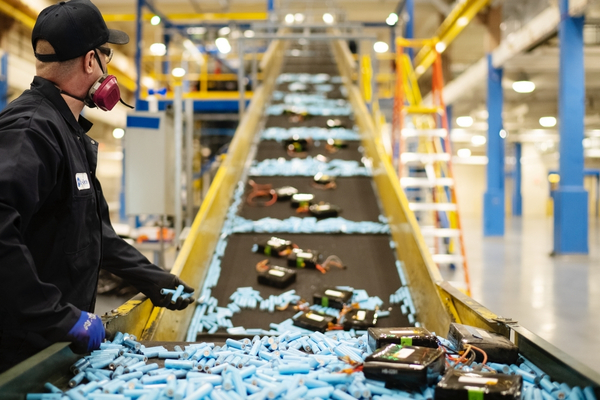
At EACR Inc., we take cell phone battery recycling seriously—because safety, sustainability, and compliance matter.
What We Do
We safely collect and process used batteries using proven methods that meet all regulatory standards. Whether you’re an individual with a single phone battery or a business with bulk needs, we make the process easy and secure.
Why It Matters
Our experienced team knows how to handle dangerous materials with care. We’re licensed to recycle electronics and batteries, and we use best practices every step of the way.
More Than Just Batteries
In addition to battery recycling, we offer:
- Complete electronics recycling
- Certified data destruction
- Bulk battery pickup for schools, municipalities, and businesses
Conclusion
Recycling your phone battery might feel like a small act—but it has a big impact. From protecting the environment to keeping communities safe, the benefits are clear.
Cell phone battery recycling is simple, safe, and impactful—especially when you trust experts like EACR Inc. Whether you’re cleaning out a junk drawer or managing bulk disposal for your business, we’re here to help.
Contact EACR Inc. today or drop off your used batteries at our Lakewood, NJ facility. Let’s keep toxic waste out of landfills and materials in use.
FAQs About Cell Phone Battery Recycling
Store them safely—cool, dry, and away from flammable materials—then bring them to a licensed recycling facility like EACR Inc.
Yes. Entire phones, including batteries, can be recycled. EACR Inc. accepts phones and safely handles battery removal and disposal.
They can be. Damaged or improperly handled batteries may leak, overheat, or even catch fire. Always dispose of them responsibly.
Yes, but use caution. Place it in a sealed container and drop it off at a recycling center. Don’t attempt to ship or tamper with it.
Only if they are undamaged and properly packaged. For damaged batteries, in-person drop-off is the safest option.
Lithium, cobalt, nickel, and copper are extracted and reused in new batteries and electronics.

